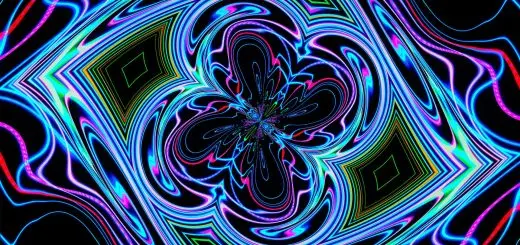Jade Emperor: Supreme Deity in Chinese Folklore

Looking for more amazing products? Check out our online store and explore our collection here! Happy shopping!
Before diving in, please note: This post is for informational purposes only. If you’d like to know more about how we approach topics, feel free to check out our friendly Disclaimer Page.
Hey there, amazing readers! 
We’re committed to delivering quality posts, and your support (even just sticking around despite the ads) means everything to us. So, bear with us, and thanks for helping us keep the good vibes rolling. Now, on to the fun stuff!
TRANSLATE BUTTON AT THE END OF THE ARTICLE
Overview
In Chinese folklore, the Jade Emperor is revered as the supreme deity and holds a significant position in the celestial hierarchy.
Believed to be the ruler of heaven and earth, the Jade Emperor is a central figure in Chinese mythology and is associated with various symbols and legends.
This article aims to provide a comprehensive understanding of the Jade Emperor, exploring his origin, role, worship, and cultural significance in Chinese society.
Origin and Historical Significance of the Jade Emperor
According to ancient Chinese mythology, the Jade Emperor, also known as Yuhuang Shangdi, emerged from the chaos that existed before the creation of the universe.
His ascension to the throne as the ruler of heavens is attributed to his wisdom, virtue, and leadership qualities.
The historical significance of the Jade Emperor lies in his role as a unifying force in Chinese folklore, bridging the gap between different realms and deities.
The Role and Powers of the Jade Emperor in Chinese Mythology
As the supreme deity, the Jade Emperor is believed to govern the celestial realm and exercise control over human affairs.
He is responsible for maintaining order, justice, and harmony in the universe.
The Jade Emperor possesses immense powers, including the ability to grant blessings, dispense rewards and punishments, and oversee the cycle of life and death.
His role as a divine judge ensures that souls are guided to their appropriate destinies based on their actions in life.
Depictions and Symbols Associated with the Jade Emperor
The Jade Emperor is often depicted in Chinese art and folklore as an elderly man with a long white beard, adorned in regal attire and a crown.
He is frequently shown seated on a throne, holding a jade tablet symbolizing his authority.
The jade, known for its association with immortality and purity, is a significant symbol associated with the Jade Emperor.
Other symbols linked to the Jade Emperor include the dragon, which represents power and wisdom, and the peach, a fruit symbolizing longevity.
The Worship and Rituals Dedicated to the Jade Emperor
The worship of the Jade Emperor is deeply rooted in Chinese culture and is particularly prevalent during the Lunar New Year celebrations.
Devotees offer prayers, incense, and food to honor the Jade Emperor’s benevolence and seek his blessings for prosperity and happiness in the coming year.
Elaborate rituals, such as the burning of paper money and the lighting of firecrackers, are performed to ward off evil spirits and ensure a smooth transition into the new year.
Temples and Shrines Devoted to the Worship of the Jade Emperor
Throughout China and other regions influenced by Chinese culture, numerous temples and shrines are dedicated to the veneration of the Jade Emperor.
These sacred spaces serve as focal points for worship and cultural activities related to the deity.
One prominent example is the Wong Tai Sin Temple in Hong Kong, which houses a statue of the Jade Emperor and attracts countless visitors seeking divine guidance and blessings.
Legends and Stories about the Jade Emperor in Chinese Culture
Chinese folklore is rich with legends and stories about the Jade Emperor, showcasing his wisdom, compassion, and divine authority.
One popular tale portrays the Jade Emperor as a compassionate ruler who transformed a humble stonecutter into a mighty mountain spirit after recognizing his sincerity and virtue.
These narratives contribute to the enduring admiration and reverence for the Jade Emperor in Chinese culture.
The Jade Emperor in the Zodiac: Rat, Ox, and Tiger Years
In the Chinese zodiac, the Jade Emperor plays a significant role in determining the animal signs associated with each year.
Legend has it that the Jade Emperor organized a race among animals to decide their order in the zodiac.
The clever rat secured first place by riding on the ox’s back, while the tiger finished third.
Hence, the rat, ox, and tiger years are considered especially auspicious and hold particular importance in Chinese astrology and culture.
Celebrations of the Jade Emperor’s Birthday: Customs and Traditions
The Jade Emperor’s birthday, which falls on the ninth day of the first lunar month, is celebrated with great enthusiasm and reverence throughout Chinese communities worldwide.
The festivities typically include elaborate rituals, prayers, and offerings made in temples and homes.
Explore the Path to Spirituality and Enlightenment – Start Here.
Lion and dragon dances, as well as cultural performances, are organized to honor the Jade Emperor and ensure a prosperous year ahead.
Cultural Influence and Representation of the Jade Emperor in Art
The Jade Emperor’s significant influence extends to various forms of art in Chinese culture.
Paintings, sculptures, and other artistic renditions often depict the Jade Emperor in regal attire, surrounded by symbols of his divine authority and power.
His representation in art serves as a visual reminder of his role as the supreme deity and reinforces the values and beliefs associated with his worship.
Comparisons and Relations to Other Deities in Chinese Mythology
While the Jade Emperor is considered the supreme deity in Chinese folklore, he shares a complex relationship with other deities in Chinese mythology.
For instance, he is often associated with the Three Pure Ones, who are believed to have assisted in his ascension to the celestial throne.
Additionally, the Jade Emperor is closely connected with other important deities such as Guan Yu, the God of War, and Mazu, the Goddess of the Sea.
These relationships highlight the interconnectedness and hierarchical structure of Chinese mythology.
The Enduring Legacy of the Jade Emperor in Modern Chinese Society
The reverence for the Jade Emperor continues to be deeply ingrained in modern Chinese society.
His presence is felt not only in religious practices but also in cultural festivals, art, and even everyday expressions.
The values and principles associated with the Jade Emperor, such as justice, wisdom, and benevolence, serve as guiding principles in Chinese society, fostering a sense of morality and ethical conduct.
Conclusion
The Jade Emperor holds a central position in Chinese folklore and mythology as the supreme deity and ruler of heaven.
His origin, role, symbols, and worship have shaped Chinese culture and society for centuries.
The enduring legacy of the Jade Emperor can be observed in various aspects of Chinese life, from religious rituals and temple architecture to artistic representations and cultural celebrations.
The reverence for the Jade Emperor reflects not only a belief in divine authority but also a deep appreciation for the values and virtues he embodies.

The Enlightenment Journey is a remarkable collection of writings authored by a distinguished group of experts in the fields of spirituality, new age, and esoteric knowledge.
This anthology features a diverse assembly of well-experienced authors who bring their profound insights and credible perspectives to the forefront.
Each contributor possesses a wealth of knowledge and wisdom, making them authorities in their respective domains.
Together, they offer readers a transformative journey into the realms of spiritual growth, self-discovery, and esoteric enlightenment.
The Enlightenment Journey is a testament to the collective expertise of these luminaries, providing readers with a rich tapestry of ideas and information to illuminate their spiritual path.
Our Diverse Expertise
While our primary focus is on spirituality and esotericism, we are equally passionate about exploring a wide range of other topics and niches 

To ensure we provide the most accurate and valuable insights, we collaborate with trusted experts in their respective domains 
Our blog originally focused on spirituality and metaphysics, but we’ve since expanded to cover a wide range of niches. Don’t worry—we continue to publish a lot of articles on spirituality! Frequently visit our blog to explore our diverse content and stay tuned for more insightful reads.
Hey there, amazing reader! 
Check out our store here and take a peek at some of our featured products below! Thanks for being awesome!
















